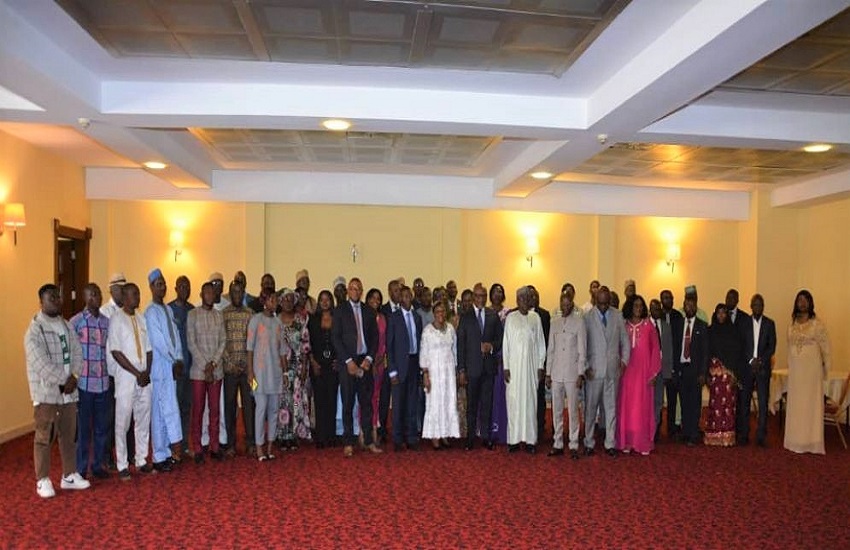This was part of the national consultation workshop co-organised by the Ministry of the Economy, Planning and Regional Development (MINEPAT) and the Niger Basin Authority (NBA) on Friday 4 May 2023 in Yaounde.
The overall objective of the national dialogue workshop with all stakeholders held in Yaounde was to advocate for the successful implementation and operationalisation of the Regional Climate Change Adaptation Fund and the Payment for Environmental Services (RCCAF/PES) mechanism in the Niger Basin. Deliberations were co-conducted by Minister Delegate at the Ministry of the Economy, Planning and Regional Development, in charge of Planning, Paul Tasong, and the NBA Executive Secretary, Abderahim Bireme Hamid, in the presence of the President of the Ad Hoc Committee in charge of advocacy for the implementation and operationalisation of the RCCAF/PES, Mrs Christine Gbedji. All the stakeholders involved (administrations, private sector and the civil society) had to unfold problems of the Niger Basin in relation to climate change; convince the various stakeholders of the need to implement the Regional Climate Change Adaptation Fund, with an option for the mechanism for Payment of environmental services in the Basin; outline the various contribution mechanisms selected; and lastly, determine the stakeholders’ perceptions of the operation and management of the RCCAF/PES.
As regards Cameroon, the Minister Delegate to MINEPAT, Mr Paul Tasong, specified that “the President of the Republic, His Excellency Paul Biya, has instructed the government, within the framework of the implementation of the 2020-2030 National Development Strategy (NDS30), to further integrate climate change concerns into sector strategies and policies and to undertake appropriate measures to adapt to and mitigate the effects of climate change”. “To this end, Cameroon, as a full member of the Niger Basin Authority, alongside other 8 member countries of the Authority is strongly committed to working together to implement strong and dequate measures to ensure that the entire Community of the nine countries is reasonably resilient to these climate changes”, he reassured.
According to Christine Gbedji, President of the Ad hoc Committee responsible for advocating the implementation and operation of the RCCAF/PES, “the RCCAF/PES intends to be an autonomous and sustainable endogenous source of funding for activities aimed at safeguarding natural resources in order to ensure the viability and sustainability of the socio-economic activities carried out through the exploitation of the basin’s natural resources”. She recommends identifying sources of funding for this fund, which will be based on the principles of Integrated Water Resource Management (IWRM), to be used to fund investments for the preservation and sustainability of natural resources in order to have a positive impact on them.
As a reminder, the Yaounde workshop falls within the implementation of Decision No. 2 of the 11th Summit of Heads of State held in Cotonou on 8 January 2016 on the funding of the Niger Basin Operational Plan, through the creation of a Regional Climate Change Adaptation Fund (RCCAF) and a Payment for Environmental Services (PESs) mechanism in the Niger Basin. To this end, an Ad Hoc Committee has been set up within the NBA to advocate to the stakeholders for the implementation and operationalisation of the RCCAF. The ultimate objective of this advocacy is to collect opinions and texts from all nine (9) member countries, with a view to drafting a consensus text that will underpin the implementation of the RCCAF, a tool for the Integrated Management of Water Resources within the Niger Basin.



